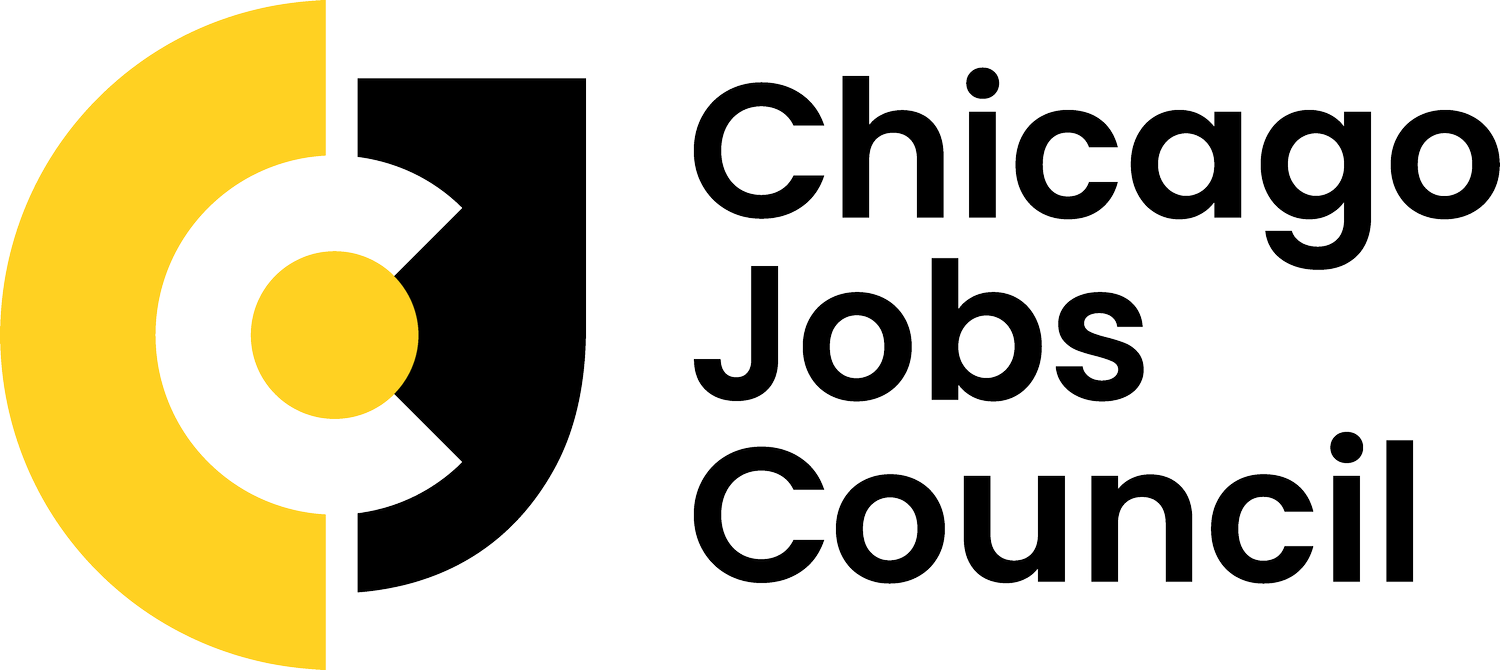CHANGING SYSTEMS
A Living Wage. Benefits. Opportunities For Advancement.
We believe these should be standards, not perks. By advocating for more equitable policy, we aim to improve how the various laws and systems within the workforce ecosystem can more thoroughly benefit the job seeker.
Our Work Focuses Around Four Key Foundational Issues:
Public Budgets.
Sustainable public resources are needed at the federal, state, and local level to ensure employment opportunity. We work to secure progressive revenue solutions for Illinois’s budget crisis.
Criminal Justice.
A criminal record of any kind follows individuals for too long and creates unnecessary barriers to employment. We work to reduce these barriers.
Job Quality.
We support efforts to improve work conditions — safety, wages, benefits, and paid time off — to make sure that employment leads to economic stability.
Work Supports.
When a job pays only poverty wages, additional supports like SNAP benefits, unemployment insurance, and TANF payments help make a family’s budget work. We support programs that keep people out of poverty when employment can’t.
Our Initiatives
Illinois Skills for Good Jobs Agenda
Illinoisans deserve a workforce development system that is bold, just, and transformative—one that serves the whole person and guarantees economic security for every worker. This system must proactively dismantle barriers to employment while forging clear, sustainable pathways to quality jobs that uplift individuals, strengthen communities, and drive organizational success. Now more than ever, we cannot afford complacency. As relentless attacks persist against people of color, youth, immigrants, mature workers, women, LGBTQ+ individuals, returning citizens, and other marginalized groups, we call on our elected officials to take decisive, unwavering action. Illinois must not only protect but expand access to economic opportunities that embody our values of equity, dignity, and progress. Our workforce—and our state—depends on it.
Four Workforce Pillars For Illinois
In response, our Skills for Good Jobs Agenda includes the following Four Workforce Pillars for Illinois:
Dedicate state funding for workforce training with a racial and gender equity lens.
Promote policies that eliminate structural employment barriers disproportionately faced by people of color, foreign-born workers, and women in Illinois.
Ensure that no Illinoisan – regardless of race, gender, age, or nationality – lives in poverty by promoting good jobs and a strong safety net.
Increase research, data sharing, and transparency across state agencies that touch education and workforce training to identify and address equity gaps in our public investments.
Illinois General Assembly Skills Agenda Bills
Illinois General Assembly Workforce Bills
Creation Of A CEJA Chicagoland Grantee Convening Table (CEJA Table)
The Climate and Equitable Jobs Act (CEJA)
The Climate and Equitable Jobs Act (CEJA), signed by Governor J.B. Pritzker in September of 2021, tackles both workforce development and clean energy goals in the state of Illinois, targeting the communities most vulnerable to climate change and economic insecurity. An unprecedented piece of climate and workforce legislation, there have been delays since 2021 as the state and CEJA partners determine how to operationalize the implementation of the different components of this act.
As a workforce intermediary, CJC is utilizing their role to assist in implementation through the creation of a CEJA Chicagoland Grantee Convening Table (CEJA Table) to foster collaboration among workforce service providers, community organizations, and government agencies.
The Objectives Of The CEJA Table Are To:
Maximize Marketing And Outreach Efforts
Coordinate marketing and outreach efforts for maximum impact and avoid duplication.
Ensure Consistent Messaging
Ensure consistent messaging across workforce programs.
Foster Collaboration
Foster collaboration as a unified workforce system.
Thank You To The Organizations Supporting The Skills Agenda:
Alternatives · AMBE · Cannabis Equity Illinois · CBO Collective · Center for Changing Lives · Chicago Area Project · Chicago Women in Trades · Community Assistance Progress · Defy Ventures · Economic Security for Illinois · Growing Home · Health & Medicine Policy Research Group · Hicks-Wright Organization · Illinois Partners for Human Service · Illinois Aging Together · Industrial Council of Nearwest Chicago · Jane Addams Resource Corporation · Kenwood Oakland Community Organization · LISC Chicago · Manufacturing Renaissance · New Moms · North Branch Works · OAI · Per Scholas · Poder · Rebuilding Exchange · Revolution Workshop · Safer Foundation · Scalelit · Shriver Center on Poverty Law · Upwardly Global · Young Invincibles · Women Employed








